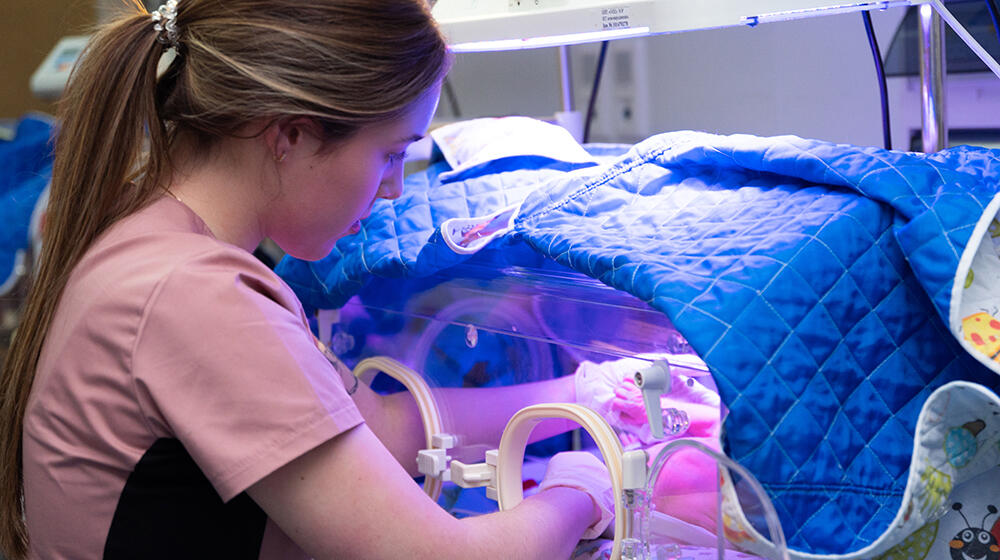Two years into the full-scale Russian invasion of Ukraine, a hospital near the front line is saving the most vulnerable citizens – babies born into war – with state-of-the-art incubators that can transport newborns between facilities and into bomb shelters at the sound of air-raid sirens.
At the Zaporizhzhia Regional Perinatal Centre, the new incubators – provided with support from UNFPA and the Spanish Agency for International Development Cooperation are equipped to maintain optimal temperature, humidity and oxygen levels, allowing babies to be moved safely.
The transport incubators have made a world of difference at the perinatal centre. Prior to their arrival, says nurse Elizabeth, “We had to carry oxygen-dependent babies to the shelter in cribs,” putting the lives of newborns at risk. The incubators also play a life-saving role in transporting babies from front-line facilities, where there is a lack of neonatal care, to the perinatal centre.
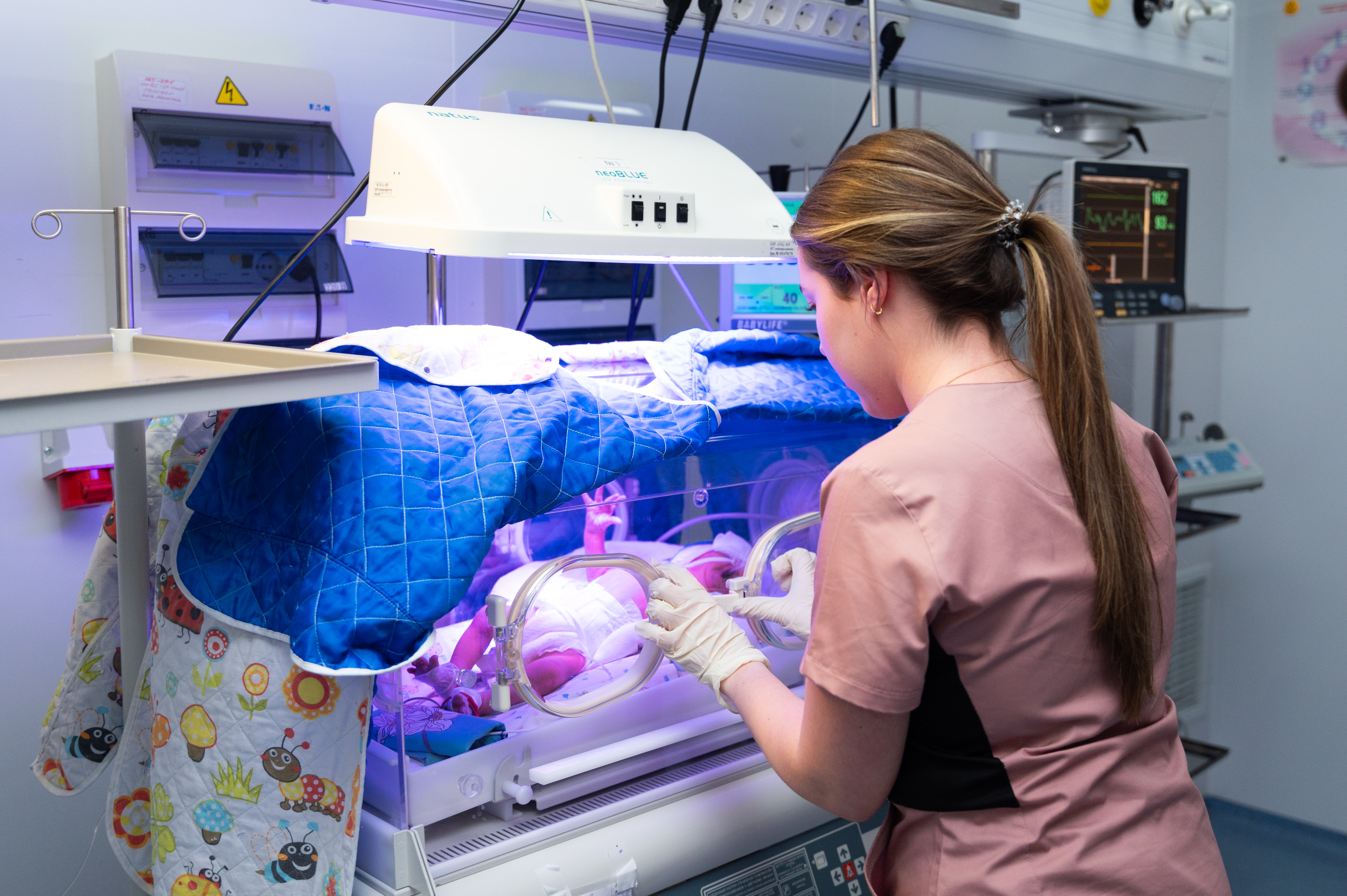
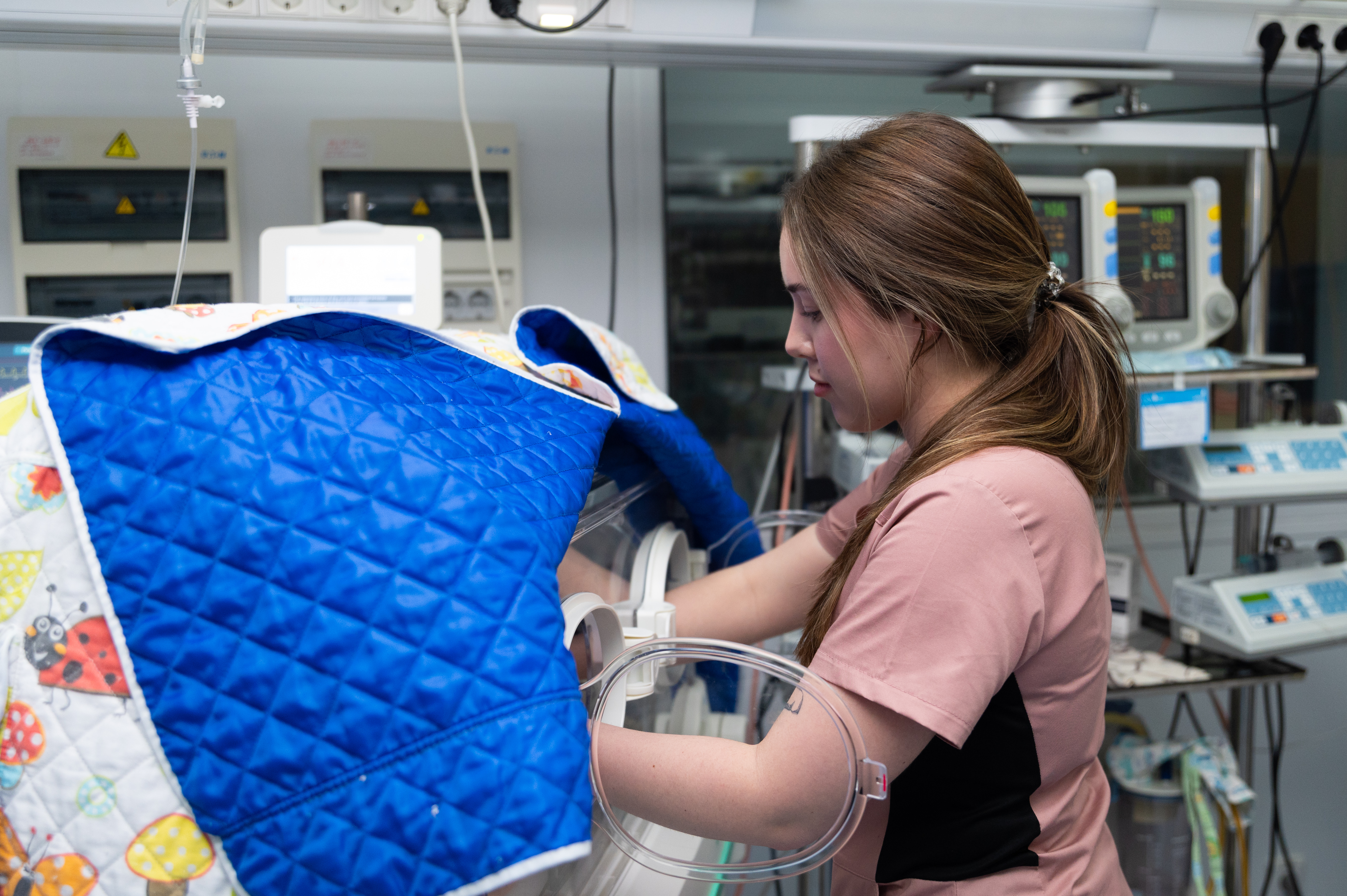
The ongoing war has taken a deadly toll on Ukraine’s health-care system, with the destruction of infrastructure and a breakdown of supply chains leaving survivor services, maternal health care and other critical forms of support out of reach for many women. In the past two years, more than 1,300 attacks on health-care facilities have been reported by the World Health Organization.
More than 3.7 million people have been internally displaced amid the fighting, and nearly 6.5 million have been forced to seek refuge outside the country, the majority of whom are women and children. Amid the stress and trauma, premature births across Ukraine have increased since the beginning of the full-scale invasion, with more than 14,780 recorded in 2023.
In 2024, 7.8 million people need health assistance in Ukraine.
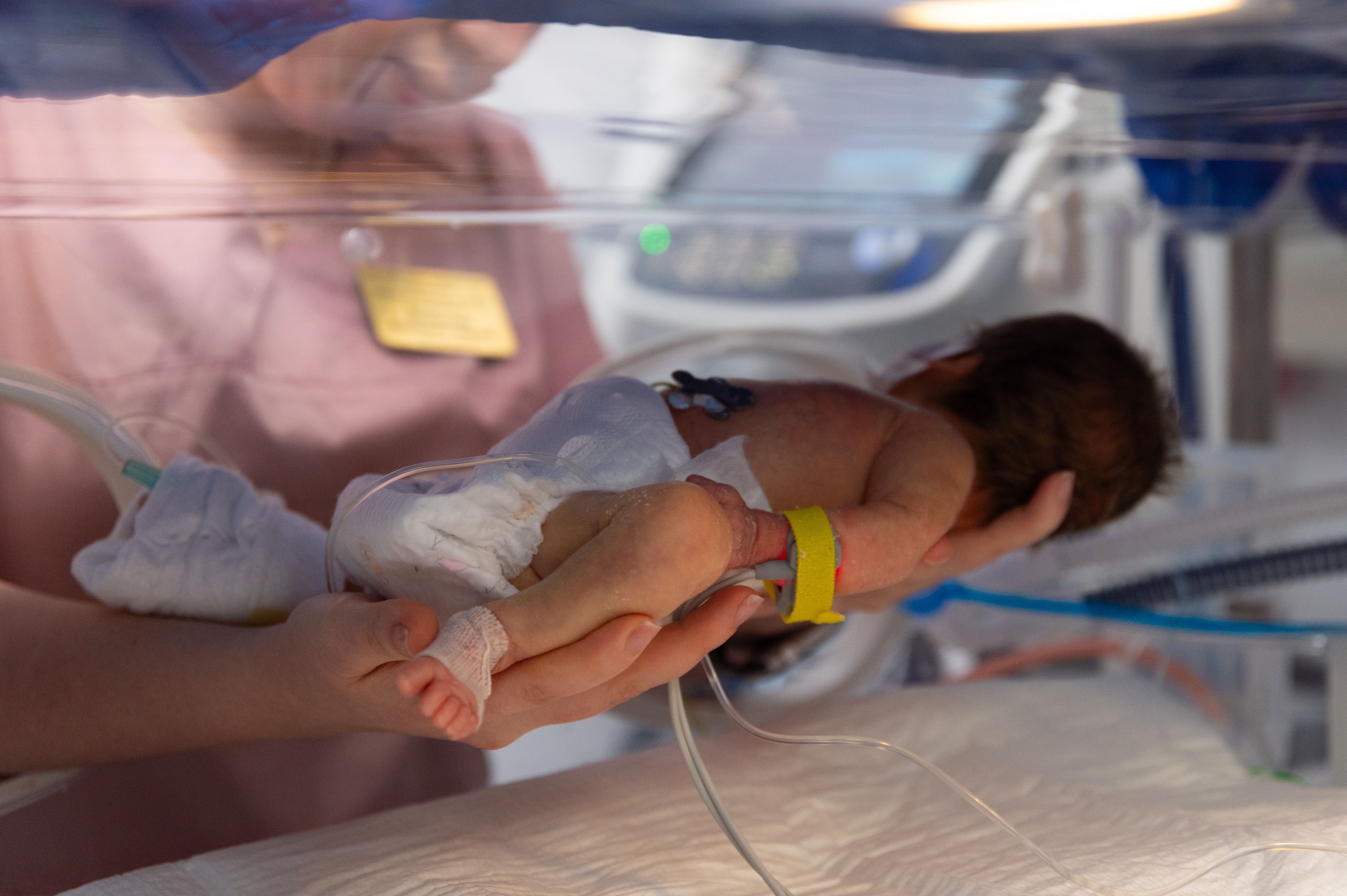
Despite the challenges, UNFPA and its partners continue to support Ukraine to strengthen the delivery of maternal health and gender-based violence prevention and response services, reaching more than 879,000 women, girls, men and boys with such services in 2023.
The support saves lives. At the Zaporizhzhia Regional Perinatal Centre, young mother Nataliia credits the quick action of doctors and one of the new transport incubators with saving the life of her child, who was born in urgent need of intensive care. “The availability of an incubator was key, as it allowed for the immediate transfer of our newborn from the delivery room to the intensive care unit,” she says. “This prompt action was vital.”
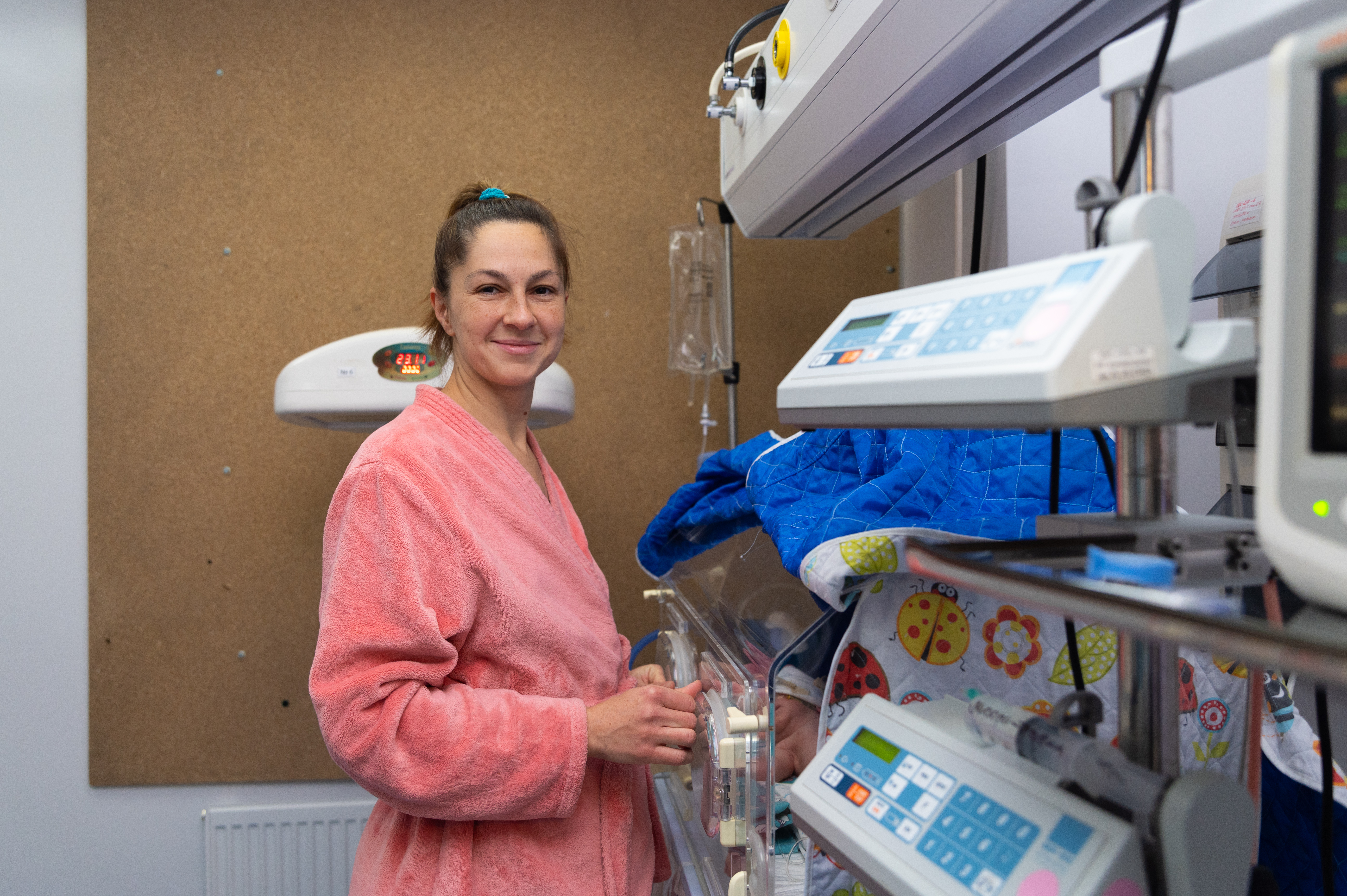
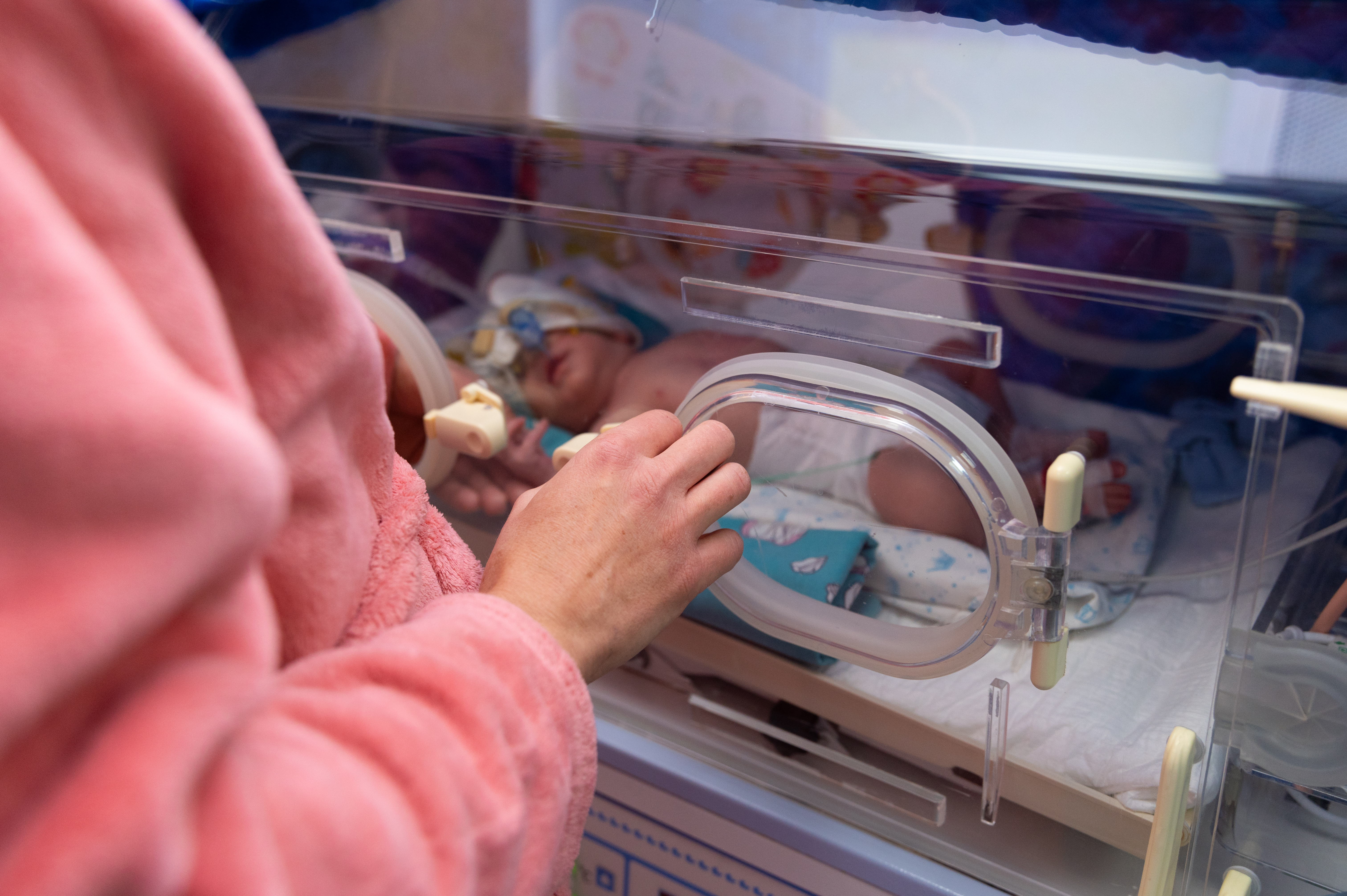
Maria is another mother whose baby benefited from the incubators. “What we feared most has happened – the delivery did not progress naturally as expected,” she says. “Thanks to the new equipment, timely and efficient, all necessary medical assistance was provided. I am sincerely grateful.”
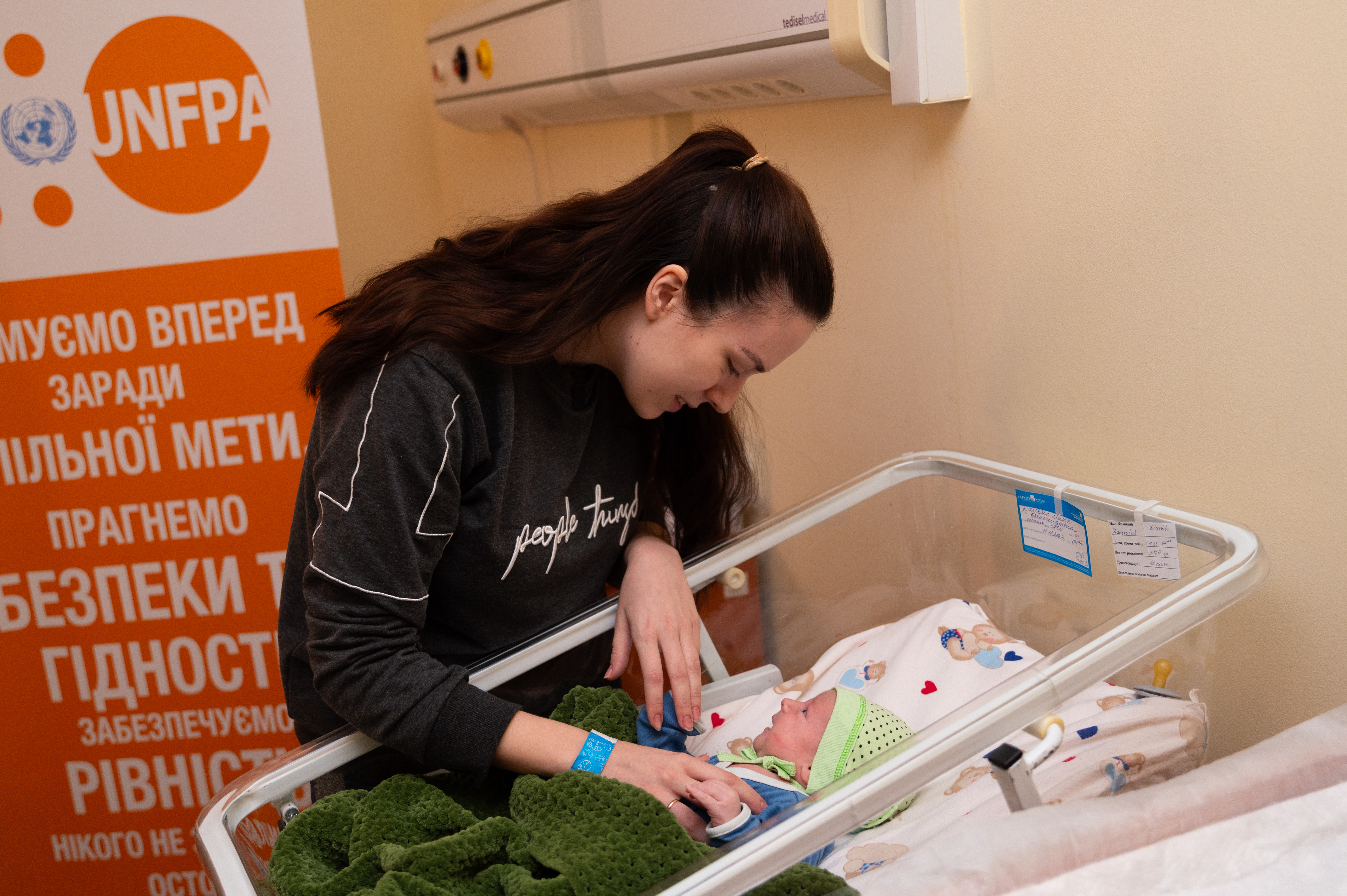
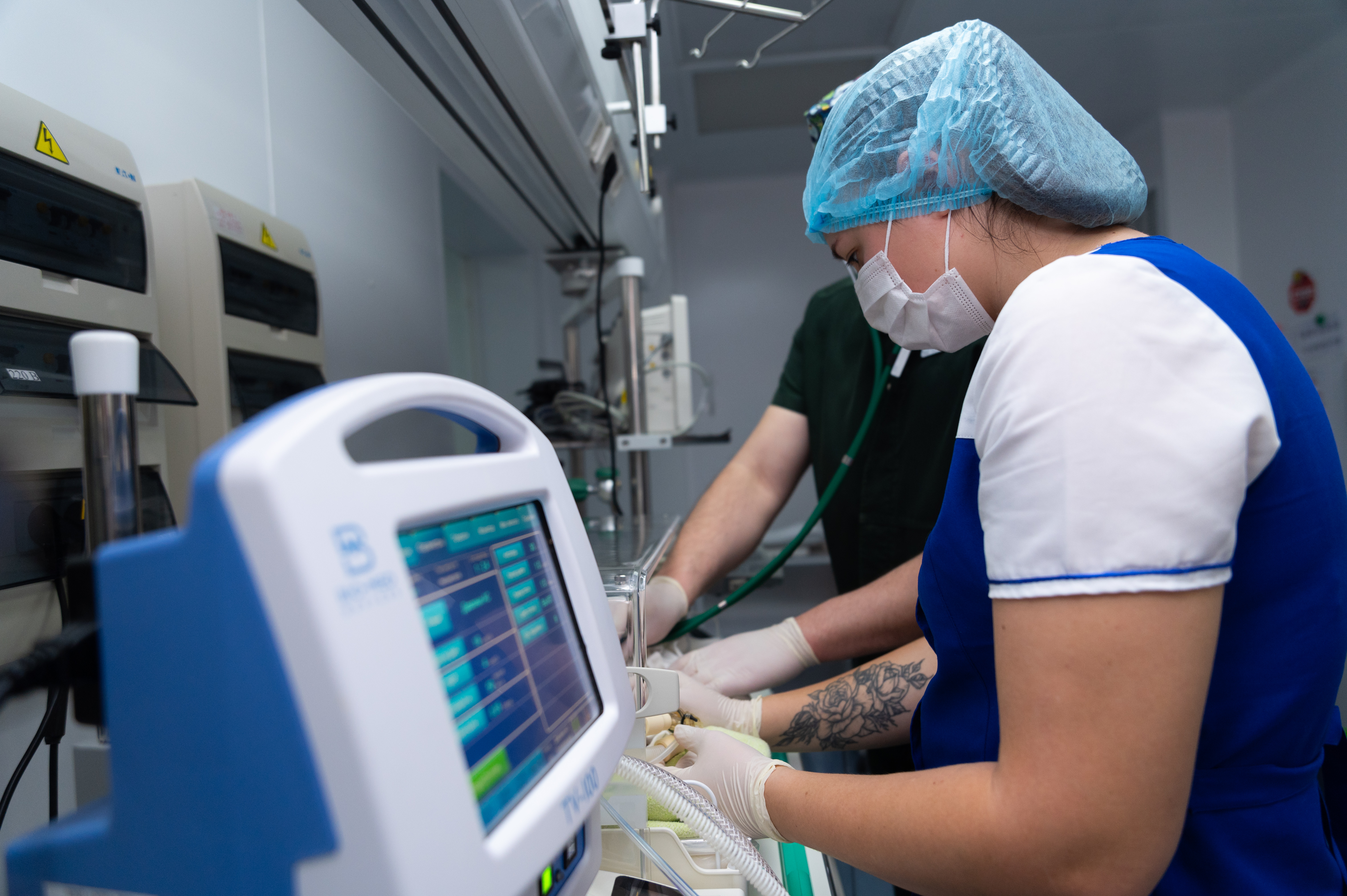
When babies need to be moved to the bomb shelter, the staff stands ready to care for the children and also to quickly evacuate, if need be, says nurse Ganna. “In the shelter, where we relocate the incubators, separate exits are leading to the adjacent street. In the event of a direct hit on the building and potential collapse, we can evacuate our patients and medical staff through these underground passages to the street. Additionally, we have a fully equipped operating room, where we transport incubators and set up a neonatal intensive care unit for newborns and postpartum women.”
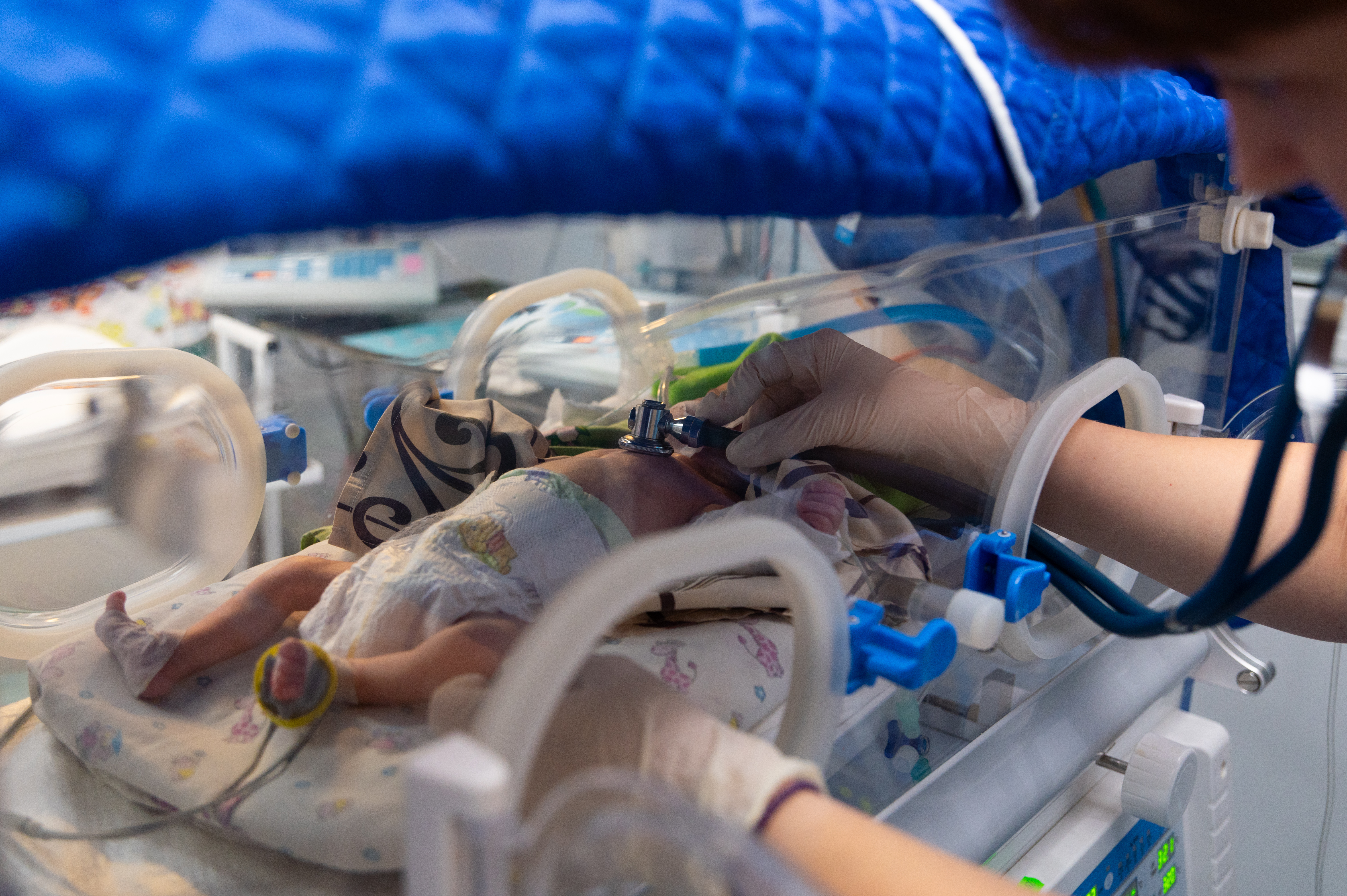
Andriy Lobanov, a pediatric anesthesiologist at the perinatal centre, says the lives of the health workers “have changed dramatically” since the escalation of the war in 2022, noting that in the beginning, “we practically lived at work” to handle all the premature births. “State-of-the-art equipment helps us perform our duties according to the highest standards and provide timely assistance to newborns,” he says. “It is exceptionally crucial in our work.”
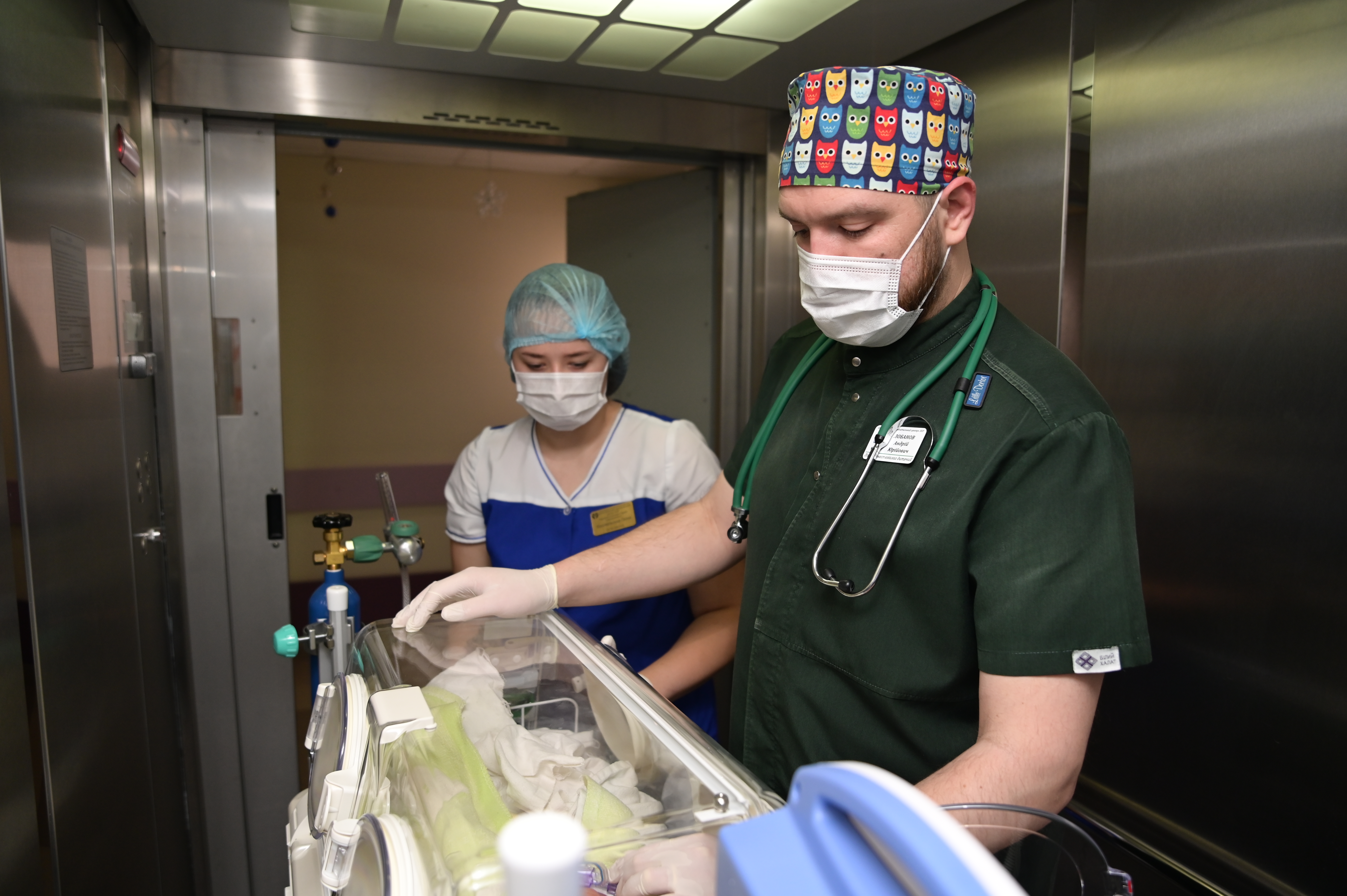
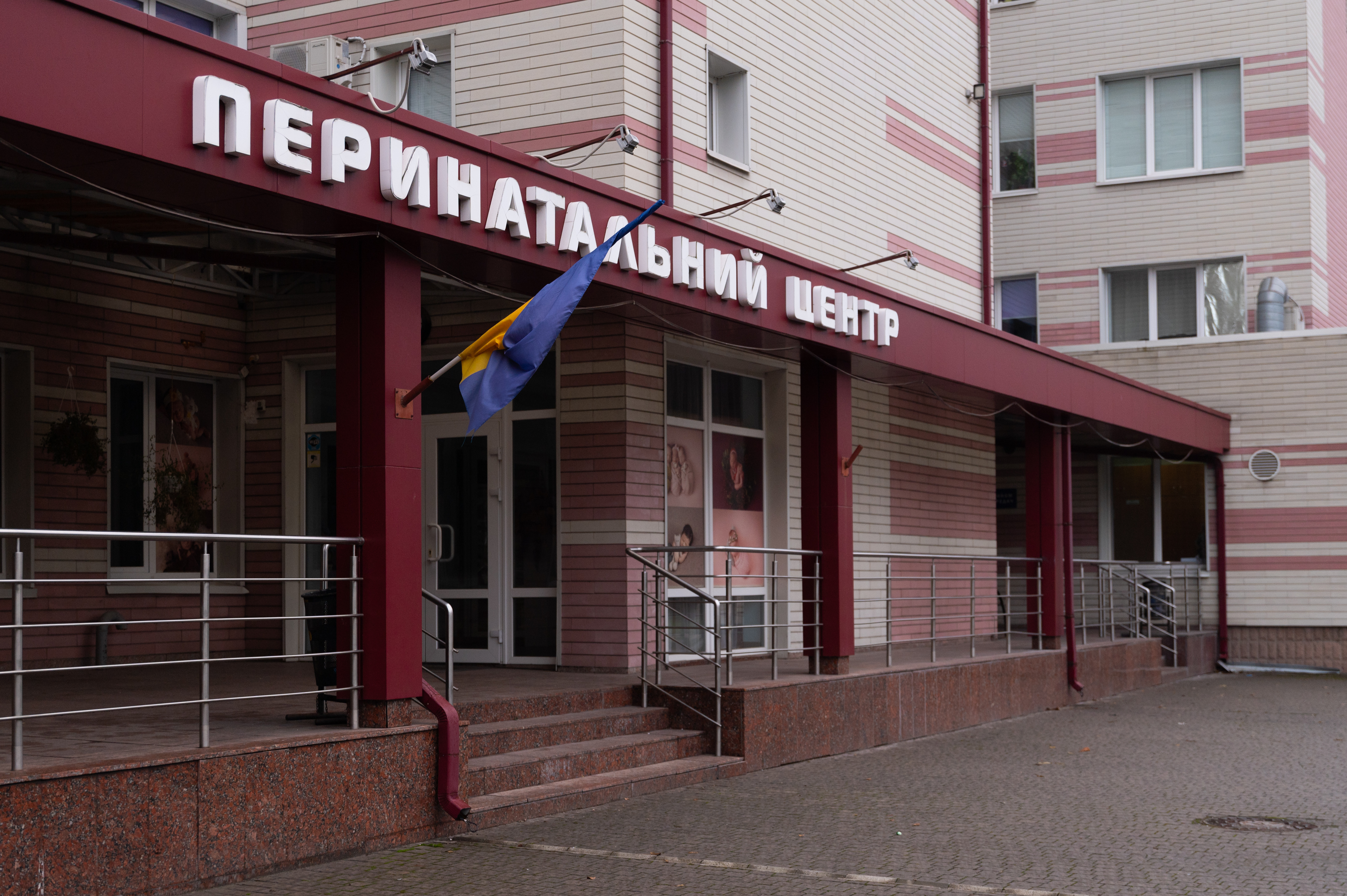
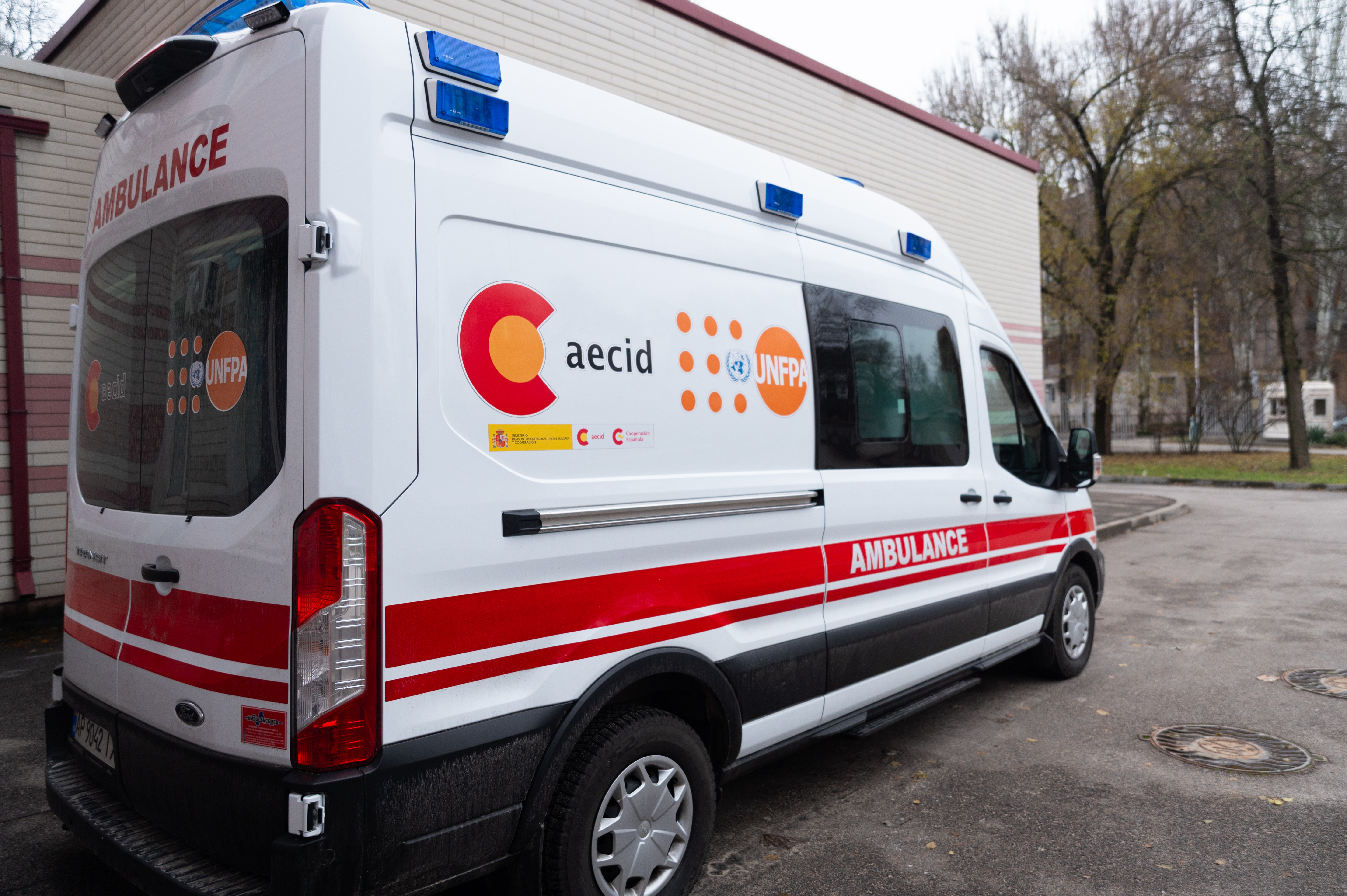
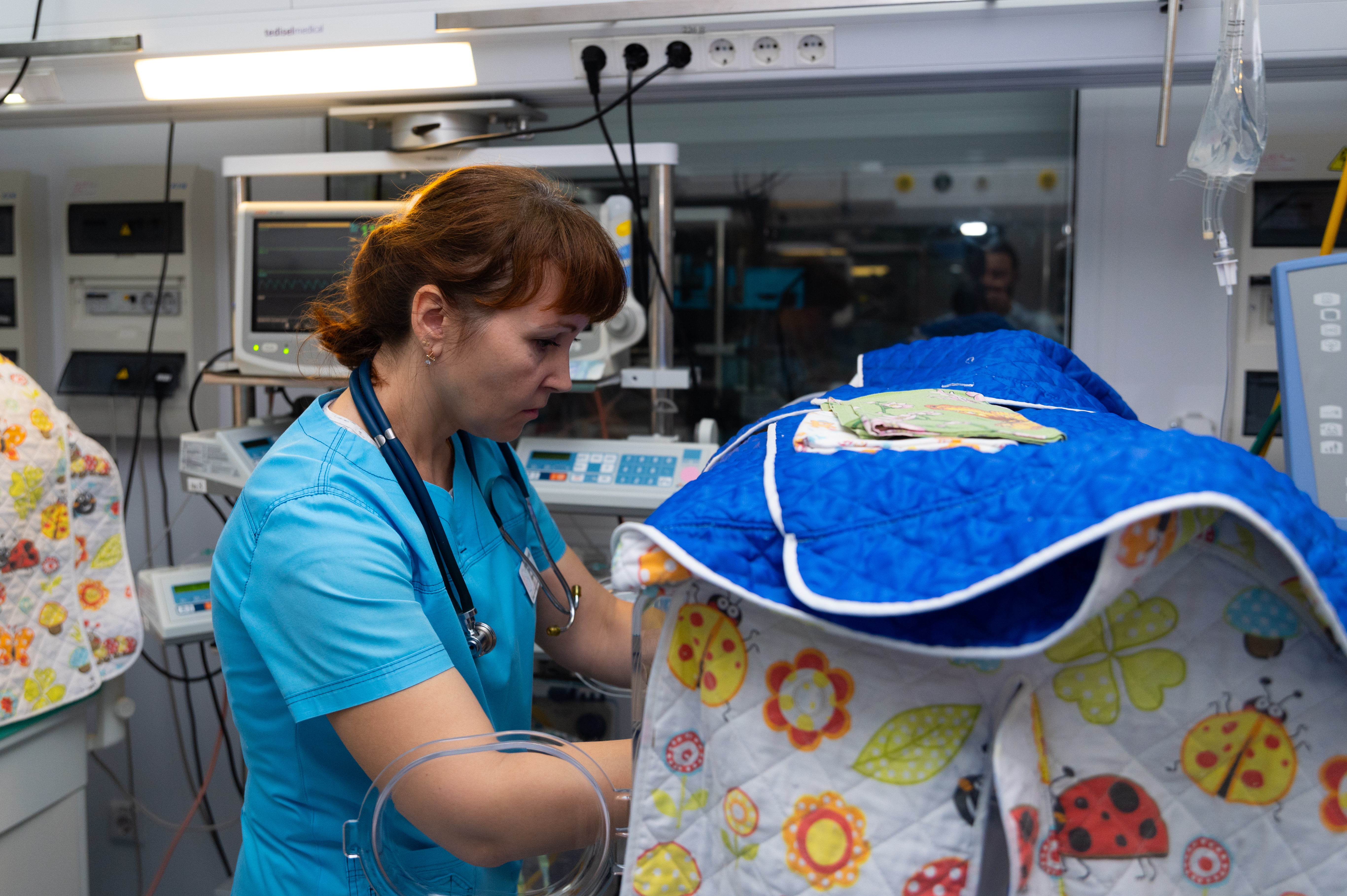
Providing support for the perinatal centre is one of the many ways UNFPA has worked with partners to improve life for women and girls in Ukraine – including reaching more than 140,000 people through mobile-health units in 2023, with some 1,200 pregnant women among them.
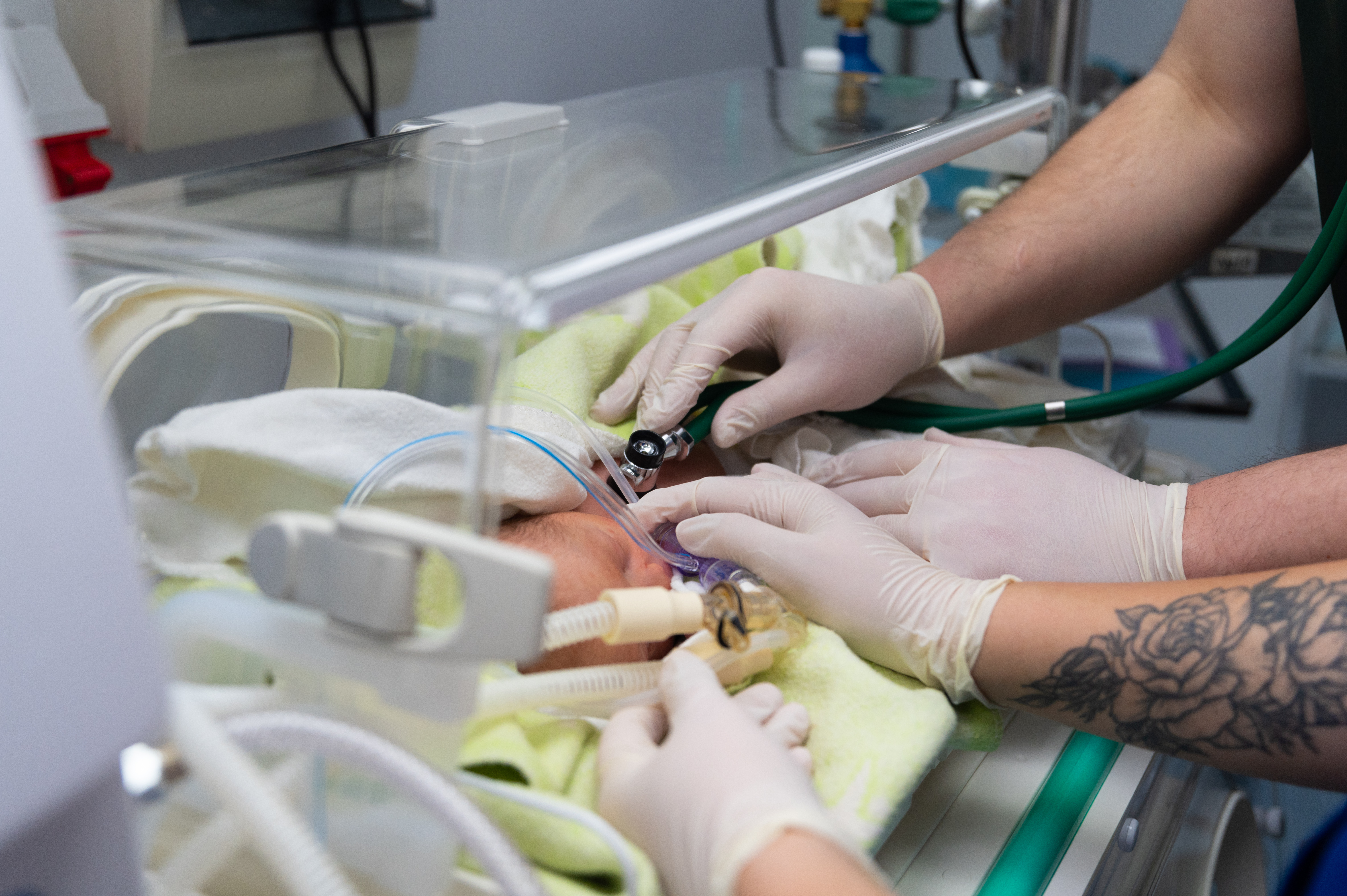
But the suffering is far from over, and UNFPA’s support is as critical as ever. Flexible and sustained funding is urgently needed to ensure that women and girls in Ukraine and neighbouring countries can give birth safely and live free from violence. This year UNFPA requires US$94.4 million to respond to the needs of those affected by the war. With this funding, we will continue to restore and expand reproductive-health and gender-based violence protection services – and save lives.

